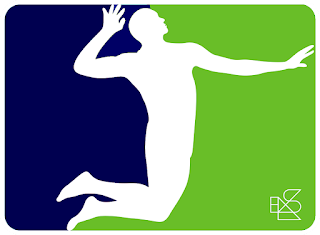Use Your Friends to Improve as a Coach
A great post by the Curious Polymath references a couple of articles about reflection, including one by myself. The question was then asked, how do you create a 'buddy system' to help you evaluate your own performance and improve over time.
Background
I was involved in a project with 4 groups of coaches, spread over 3 years. The project was guided by the skills and expertise of Dr Dan Greenwood, now the Director of Performance Science with the Milwaukee Brewers.
Keys
The Problem
Initially, the problem we tried to solve was to get coaches to realise that how they communicated impacted significantly on how well the athletes learned. The solution was to provide evidence based research in a practical way, and then to record and analyse their own coaching and provide them feedback. We did this with a couple of volunteers and then shared with the group in an anonymised way.
The next problem to solve was to get coaches to communicate with each other. The barrier was trust and the (false) desire to keep some sort of competitive advantage. The solution was to talk about coaching. Almost all coaches like talking about coaching and will do it for hours if allowed. Once we had them talking, the next thing was to get them to share experiences from a training session. This was confronting for some and we learned a lot from this process about cultural differences.
The last step was to give the tools to coaches to create their own 'buddy system' or 'critical friend group' to provide feedback in a way that the coach felt comfortable with. Most people think that feedback comes from top down with a negative power dynamic, so we had to break this down and create an environment of trust and safety.
Practical Solution
If coaches are setting up this group themselves they can skip through the first two parts as they are only really likely to ask people they trust. The steps listed below are constraints for the coach to create a safe space for them to listen to people they trust:
- What? Work out what you would like feedback on? Be specific (ie: what is my tone and demeanour when I address the group? how often did I mention the player by name when I gave feedback, etc etc)
- When? Work out when and where you would like to be given the feedback (ie: the next day over coffee, immediately after the game by text so it can be checked later on the bus, by phone in the car on the way home, etc)
- Who? Work out who would give you honest feedback. This might not be a best friend, but it needs to be someone the coach will pay attention to
Challenges for the Buddy
The challenge for the 'critical friend/buddy' is to limit themselves to the feedback requested and the medium requested. Keeping to this will build trust and create a safe environment. After this, the theory is that the relationships will progress with fewer and fewer constraints.
Something we didn't include at the time but I've found to be really useful since, is the GRIP method for conversations and I've included this in work on mentorship since then.
Evidence Informed
I should add that all the work was/is and evidence informed.



Comments
Post a Comment